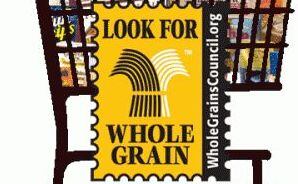Qualified health claims enable firms to talk about a relationship between a substance and disease where the supporting science fails to meet the FDA’s ‘significant scientific agreement’ standard, but the claims are ‘qualified’ in such a way as to not mislead consumers.
While the qualification often comes in the form of a far-from-consumer-friendly disclaimer, many observers believe the claims are still better than nothing.
The FDA has concluded that there is very limited scientific evidence for this claim
In a letter (click here) to ConAgra Foods responding to a petition it filed in early 2012, the FDA concluded: “The evidence supporting a risk reduction relationship, while credible, falls near the lower end of the ‘limited’ category and should be described as ‘very limited’ in food labeling to avoid misleading consumers.”
As a result, the FDA will consider exercising its enforcement discretion for the following qualified health claims:
'Whole grains may reduce the risk of type 2 diabetes, although the FDA has concluded that there is very limited scientific evidence for this claim.'
OR: 'Whole grains may reduce the risk of type 2 diabetes. FDA has concluded that there is very limited scientific evidence for this claim.'
In its petition, ConAgra had suggested the following wording: 'Scientific evidence suggests, but does not prove, that diets low in saturated fat and cholesterol that include three servings (48g) of whole grains per day may reduce the risk of diabetes mellitus type 2.'
ConAgra: We’re disappointed with way FDA rated science, but this is a landmark

ConAgra is “disappointed” with the way the FDA rated the science supporting its application, given that the Mayo Clinic and the National Institutes of Health - among others - had viewed it very differently, Mark Andon, Ph.D., Vice President of Nutrition at ConAgra Foods, told FoodNavigator-USA.
But on the plus side, he said, the first thing consumers will read if firms use these claims on food labels is: 'Whole grains may reduce the risk of type 2 diabetes’.
“In other qualified claims, the bit about how ‘limited’ the evidence is comes at the beginning, so I took this as a good sign", said Dr Andon.
"I’d hoped for more, but this is a landmark in the health claims area [with the exception of a highly-qualified claim about chromium picolinate and insulin resistance there are no other diabetes-related claims permitted on foods]. Many qualified health claims petitions are outright denied."
Asked whether ConAgra intended to go back to the FDA and try to convince it to re-word the claims, he said: “We have no intention of re-submitting the petition.”
So will ConAgra use the claims on pack?
“Time will tell if we do”, said Dr Andon. “But being able to make them opens up an avenue so that what consumers see on pack is consistent with the messaging they are already getting from public health agencies and health care providers about whole grains and diabetes. Currently, they are hearing about this but it's not being reinforced when they go to the grocery store."
'The conditions of use are a little vague'

As for the conditions of use, as with any health claim, the whole grain/diabetes claims are only permitted on foods below set thresholds for total fat, saturated fat, cholesterol and sodium, and containing at least 10% of the daily value of one or more of six key nutrients (vit A, vit C, calcium, iron, protein, fiber).
However, the FDA does not specify a minimum level of whole grains as a qualification for making the claim but says it will “look at the whole grain content of the food and monitor for any misleading use of the claim”.
This is "a little vague" admitted Dr Andon. However, in follow-up conversations with the FDA, he had been advised that as a benchmark for determining whether a food might qualify to make the claims, firms should look at the amounts of whole grains that "authoritative bodies have previously determined as not insignificant".
Thus a good starting point might be the 2010 Dietary Guidelines for Americans, which advise consumers to look for products with at least 8g of wholegrains per serving, he said.
Attorney: FDA continues to engage in value laden qualification of claims in disregard of First Amendment limits on its powers
So what do lawyers think of the FDA’s enforcement discretion letter?

Leading food law attorney and qualified health claims expert Jonathan Emord was not impressed.
He told FoodNavigator-USA: “The FDA continues to engage in value laden qualification of claims in disregard of First Amendment limits on agency power.
“Rather than compel ConAgra to communicate FDA’s perception of the relative value of science supporting the claim (ie. ‘There is very limited scientific evidence for this claim’), which violates the First Amendment, the FDA should have included the non-value laden qualification specified in Pearson v. Shalala: “The scientific evidence in support of this claim is inconclusive.”
He added: “The process by which FDA comes to its conclusion of ‘very limited scientific evidence’ involves subjectively assigning weight to each piece of supportive evidence, categorically rejecting some, to come to its conclusion of ‘very limited science’.
“That process is imbued with bias ultimately expressed in a value laden qualification. It thus offends First Amendment limits on the exercise of government discretion over speech.”
'Virtually all, if not all qualified health claims are phrased like this'
Marc Ullman, partner at law firm Ullman, Shapiro & Ullman, said that to him, the qualification of the permitted claims rendered them of "no utility".
However, the fact the FDA had even acknowledged a relationship between whole grains and type 2 diabetes was a step forward, he said, and some manufacturers might feel that the claim had some value.
Meanwhile, the PR generated around the 'approval' has been positive (the ConAgra press release does not refer to the wording of the actual claim), he said.
Given that "virtually all, if not all" qualified health claims are phrased in this consumer-unfriendly manner, ConAgra had probably expected it would not get the wording it asked for, he said.
Whole Grains Council: It's too bad the claim is so watered down

Cynthia Harriman, director of food and nutrition strategies at the Whole Grains Council and Oldways, said she would be "surprised to see companies rushing to add this statement to their packaging".
She added: "We don't expect to see the use of statements like, 'May be just a little bit lower in calories' or 'probably tastes okay, but we're not sure.' Marketing just doesn't work that way.
"It's too bad the claim is so watered down, because of course we think diabetics would be better off eating whole grains."
General Mills did not say whether it would use the claim on its products, but said it was "pleased to see the FDA acknowledge the relationship between whole grain consumption and the reduced risk of Type 2 Diabetes".
A spokesperson added: "We are also pleased to see FDA reaffirm the widely accepted definition for whole grain as ‘consisting of the intact, ground, cracked or flaked caryopsis, whose principal anatomical components – the starchy endosperm, germ and bran – are present in the same relative proportions as they exist in the intact caryopsis'."
Click here to read ConAgra’s original petition of January 2012.
Click here to read the FDA’s September 2013 response in full.
